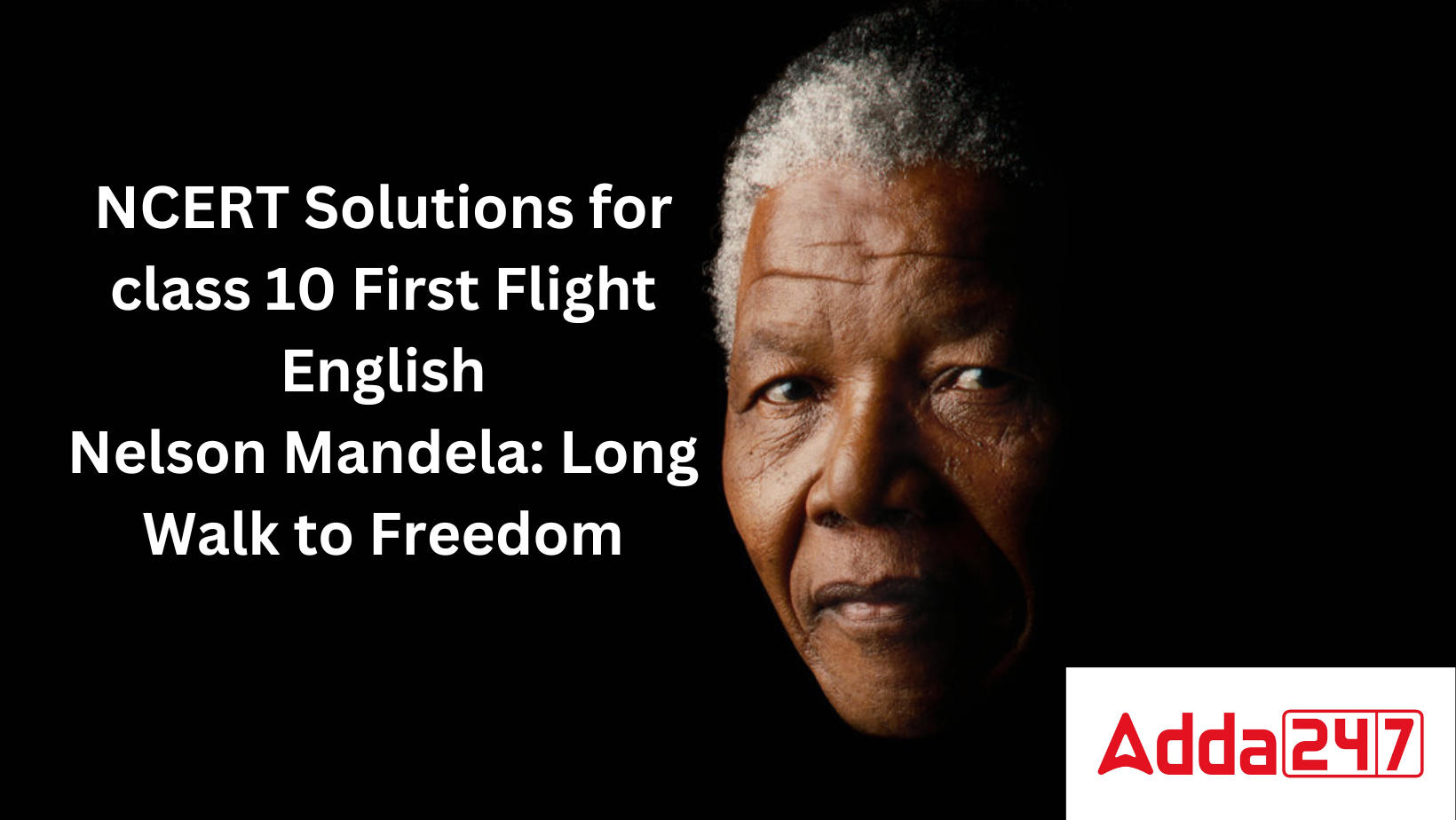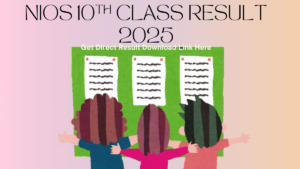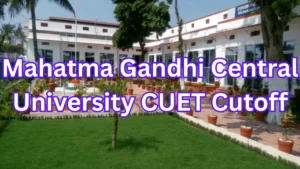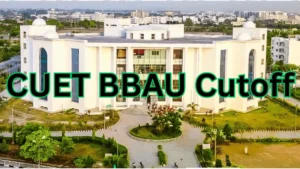Nelson Mandela Class 10
Former South African President Nelson Mandela’s autobiography is titled Long Walk to Freedom. The summary of Nelson Mandela’s lengthy journey to liberation is contained in this article. The text in this chapter is taken from the book “Long Walk to Freedom.” It includes details about the swearing-in ceremony, quotes from his speech, and information about his development into a freedom warrior. It speaks to the numerous other individuals who fought for their freedom. At that time, the oppressive practice known as “apartheid” was fairly common in South Africa. It made reference to prejudice against people based on their race and skin tone. Dark-skinned individuals were denied their basic rights in one of the most violent nations. This lesson provides an overview of Mandela’s efforts to create a society free from prejudice based on a person’s ethnicity, colour, or gender.
Class 10 English Chapter 2 Nelson Mandela Question Answer: Video Explanation
Watch the given videos explanation of Nelson Mandela: Long Walk to Freedom for a better understanding of the chapter
Class 10 English Chapter 2 Nelson Mandela Question Answer: Long Walk to Freedom PDF
A PDF is given below for the students’ accessibility which they can download for future reference
Nelson Mandela: Long Walk to Freedom
Class 10 English Chapter 2 Nelson Mandela Question Answer Long Walk to Freedom: Solved Textbook Questions
Activity (Page 17)
Question: In Column A are some expressions you will find in the text. Make a guess and match each expression with an appropriate meaning from Column B.
| A | B |
| (i) A rainbow gathering of different colours and nations | – A great ability (almost unimaginable) to remain unchanged by suffering (not losing hope, goodness or courage) |
| (ii) The seat of white supremacy | – A half-secret life, like a life lived in the fading light between sunset and darkness |
| (iii) Be overwhelmed with a sense of history | – A sign of human feeling (goodness, kindness, pity, justice, etc.) |
| (iv) Resilience that defies the imagination | – A beautiful coming together of various peoples, like the colours in a rainbow |
| (v) A glimmer of humanity | – The centre of racial superiority |
| (vi) A twilight existence | – Feel deeply emotional, remembering and understanding all the past events that have led up to the moment |
Answer:
| A | B |
| (i) A rainbow gathering of different colours and nations | – A beautiful coming together of various peoples, like the colours in a rainbow |
| (ii) The seat of white supremacy | – The centre of racial superiority |
| (iii) Be overwhelmed with a sense of history | – Feel deeply emotional, remembering and understanding all the past events that have led up to the moment |
| (iv) Resilience that defies the imagination | – A great ability (almost unimaginable) to remain unchanged by suffering (not losing hope, goodness or courage) |
| (v) A glimmer of humanity | – A sign of human feeling (goodness, kindness, pity, justice, etc.) |
| (vi) A twilight existence | – A half-secret life, like a life lived in the fading light between sunset and darkness |
Oral Comprehension Check (Pages 18-19)
Question 1: Where did the ceremonies take place? Can you name any public buildings in India that are made of sandstone?
Answer: The Union Buildings in Pretoria formed a beautiful sandstone amphitheatre for the events, which were attended by dignitaries and international leaders from several countries. Red sandstone is used in the construction of the Rashtrapati Bhavan and Red Fort, two governmental structures in India.
Question 2: Can you say how 10 May is an ‘autumn day’ in South Africa?
Answer: Autumn generally denotes the harvest season, which is linked to abundance and prosperity. The establishment of South Africa’s first democratic, non-racial government on this auspicious day took place in front of the largest gathering of world leaders ever on South African soil, which is why May 10 is known as an “autumn day” in that country.
Question 3: At the beginning of his speech, Mandela mentions “an extraordinary human disaster”. What does he mean by this? What is the “glorious … human achievement” he speaks of at the end?
Answer: The practise of Apartheid in South Africa was what Mandela meant to convey in his address, “an unparalleled human calamity.” People were segregated based on their skin colour under this practise, and Black people suffered the most as a result of discrimination from other races. They were unable to exercise their right to freedom. Mandela spent 18 years in prison on the infamous “Robben Island,” where the guards tortured him. He viewed becoming the first Black president of South Africa, a country where Black people were denied access to basic necessities, endured various forms of discrimination, and received poor treatment, as a “great wonderful human triumph.”
Question 4: What does Mandela thank the international leaders for?
Answer: Given that the South Africans were once regarded as outlaws, Mandela felt incredibly pleased to host dignitaries and world leaders to the swearing-in event. He then congratulated everyone for travelling great distances to witness the historic swearing-in of South Africa’s first Black president. This was an admirable act of global recognition for a young, free, democratic nation. It is possible to view this incident as a victory for justice, peace, and human dignity.
Question 5: What ideals does he set out for the future of South Africa?
Answer: Mandela envisioned freeing the people of South Africa from the ongoing shackles of need, hardship, suffering, and discrimination based on gender and other factors. He wished for all citizens of the nation to be free from bigotry and all types of servitude.
Oral Comprehension Check (Page 21)
Question 1: What do the military generals do? How has their attitude changed and why?
Answer: The top police and military officials in South Africa praised Mandela and vowed to support him. This was really important because if they hadn’t, they would have arrested him and imprisoned him throughout the Apartheid era. Due to the difficulties and sacrifices made by numerous South African heroes, their attitude toward Blacks altered. This struggle for independence brought about a significant shift in the thinking of many people and was not merely a fight against Apartheid. Mandela thought that people are innately more inclined to love than hate and that love is something that can be taught.
Question 2: Why were two national anthems sung?
Answer: Two national anthems were sung during the ceremonious inauguration ceremony: the Whites sang “Nkosi Sikelel -iAfrika” and the Blacks sang “Die Stem,” the previous anthem of the Republic. The equality of rights between Whites and Blacks was represented by both anthems.
Question 3: How does Mandela describe the systems of government in his country –
(i) in the first decade, and (ii) in the final decade, of the twentieth century?
Answer:
- The white South Africans put aside their differences in the first decade of the 20th century and established a system of racial dominance over the dark-skinned inhabitants of their own country. One of the toughest, most brutal societies the world has ever known had its start because of this.
- The previous form of government was permanently overthrown and replaced with one that recognised the rights and freedoms of all people, regardless of the colour of their skin, in the final decade of the 20th century.
Question 4: What does courage mean to Mandela?
Answer: Mandela believed that courage was not the absence of fear but rather the ability to overcome it. A brave man is not one who feels no fear, but one who faces and overcomes it.
Question 5: Which does he think is natural, to love or to hate?
Answer: Mandela thought that love comes more naturally to the human heart rather than hate.
Oral Comprehension Check (Page 24)
Question 1: What “twin obligations” does Mandela mention?
Answer: Every man, according to Mandela, has two obligations in life: (i) his obligations to his family, which include his wife, parents, and children; and (ii) his obligations to his people, community, and country.
Question 2: What did being free mean to Mandela as a boy, and as a student? How does he contrast these “transitory freedoms” with “the basic and honourable freedoms”?
Answer: Like any young child, Mandela believed that freedom meant living a joyous, carefree existence during his formative years. However, once a young person reaches adulthood, their youthful pranks appear fleeting since, in the eyes of an adult, they are all pointless. When a person reaches adulthood, they learn how to support themselves and make their own food. He recognises the fundamental and honourable freedom in his family and the community he lives in such a situation.
Question 3: Does Mandela think the oppressor is free? Why/Why not?
Answer: According to Mandela, an oppressor is like a victim of hatred who is imprisoned by prejudice and narrow-mindedness, so he does not believe that the oppressor is free. He believes that the humanity and peace of mind of both the oppressor and the oppressed are stolen.
Thinking about the Text (Page 24)
Question 1: Why did such a large number of international leaders attend the inauguration? What did it signify the triumph of?
Answer: The participation of the world leaders in the inauguration ceremony was a sign of the international community’s support for the idea of the abolition of apartheid. This represented the triumph of good over evil and a society free from prejudice and discrimination based on caste, color, or creed.
Question 2: What does Mandela mean when he says he is “simply the sum of all those African patriots” who had gone before him?
Answer: Mandela pays gratitude to all those who gave their lives in support of the fight for liberation by claiming that he is “just the total of all those African patriots.” He claims that because those freedom fighters had set the route for cooperation and togetherness for him, he will always be grateful to them and express his gratitude to them. Mandela believed that when he came to power, his people would support and cooperate with him as well as promote equality among themselves.
Question 3: Would you agree that the “depths of oppression” create “heights of character”? How does Mandela illustrate this? Can you add your own examples to this argument?
Answer: Yes, I concur that “heights of character” are indeed produced by “depths of oppression.” Nelson Mandela uses the lives of notable South African figures like Oliver Tambo, Walter Sisulu, Chief Luthuli, Yusuf Dadoo, Bram Fischer, and Robert Sobukwe to illustrate this point. These figures served as role models for others by giving their lives in the protracted struggle for freedom.
There were many great leaders who stood up to the oppression of British rule in India’s pre-Independence era, including Netaji Subhash Chandra Bose, Mahatma Gandhi, Sardar Vallabhbhai Patel, Lala Lajpat Rai, Chandra Shekhar Ajad, Bhagat Singh, and many others. If we contrast them with the calibre of political leaders India has now, Nelson Mandela appears to have it exactly right.
Question 4: How did Mandela’s understanding of freedom change with age and experience?
Answer: With age and rich experience, Mandela understood the essence of freedom in everyone’s life. As a young boy, he always thought that he was born free and could do anything that he wanted. He strongly believed that as long as he obeyed his father and abided by the customs of his tribe, he was free in every possible way. However, as he grew older, he started feeling that freedom was required to raise a family and to earn livelihood, this started dominating his thoughts and views. In due course of time, he realised that he was selfish and was leading an illusionary life during his boyhood. He slowly understood that it was not just his freedom alone that was being curtailed, but the freedom of all the Black people was retrenched. Mandela understood that his people were being deprived and discriminated and this led him to develop a hunger for the freedom of his people.
Question 5: How did Mandela’s ‘hunger for freedom’ change his life?
Answer: During his youth, Mandela realised that it was not just his freedom alone that was being curtailed, but the freedom of all Black people. The hunger for his own freedom became the hunger for freedom for all his fellow brothers and sisters. In the process, this changed the fearful man to a bold rebel. Mandela sacrificed the comforts of a settled family life to fight for the freedom of his countrymen. He joined the African National Congress and this changed his perspective from a frightened young man into a fearless person who fought against racial prejudice and colour discrimination.
Found this article helpful?
Reach us by means of a visit or call our senior instructor at +91-9625869989 to figure out additional information about the various choices and streams that are open.
We would really see the value in it on the off chance that you could grant a portion of your insight. By utilizing our application, tests, and YouTube class help, you can unwind any vulnerability assuming that you’re centred around getting the best grades Adda247.
Class 10 English Chapter 2 Nelson Mandela Question Answer Long Walk to Freedom: QNAs
Que. Where and how to download NCERT Solutions for Class 10 English?
Ans. The NCERT Solutions for Class 10 English are available for easy download at Adda247’s website. The textbook questions present in the NCERT textbook of Class 10 English are solved in a detailed manner by our team of subject experts, according to the NCERT guidelines. The download links are provided under each chapter’s web pages.
Que. What are the benefits of using the NCERT Solutions for Class 10 English First Flight from Adda247?
Ans. The benefits of using the NCERT Solutions for Class 10 English First Flight from Adda247 are:
- Along with NCERT Solution, the student is getting video explanations also.
- PDF is also provided that can be downloaded and saved for future reference.
Que. How do the NCERT Solutions for Class 10 English First Flight help you to score efficiently?
Ans. The NCERT Solutions for Class 10 English are prepared in a CBSE-specific format to score good marks in the board exam. The solutions created are 100% accurate as per the exam pattern and marks weightage designed by the prescribed board. By using the NCERT Solutions from ADDA 247, students will be able to understand the concepts effectively and score well in the board exams. Students can download the solutions and answer the textbook questions without any difficulty. It also helps students to get their doubts cleared immediately without carrying them for a longer period.









 NIOS 10th Result 2025 Out @results.nios....
NIOS 10th Result 2025 Out @results.nios....
 Mahatma Gandhi Central University CUET C...
Mahatma Gandhi Central University CUET C...
 CUET BBAU Cutoff 2025, Check Category Wi...
CUET BBAU Cutoff 2025, Check Category Wi...









